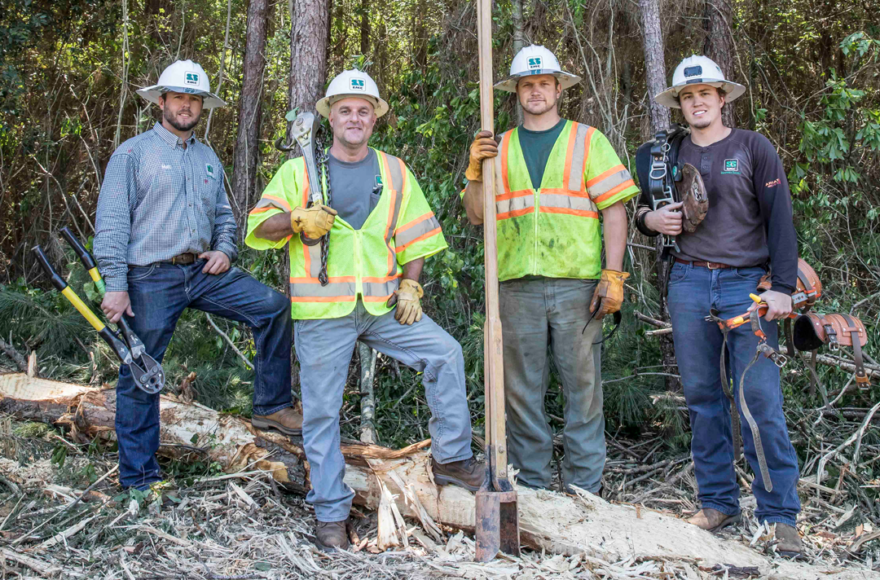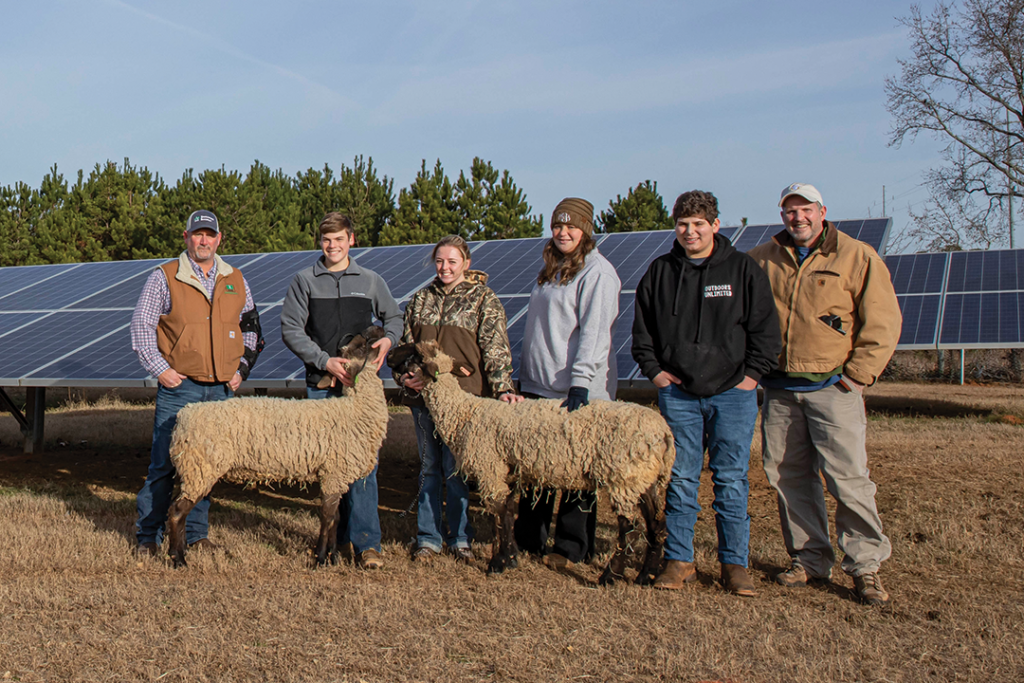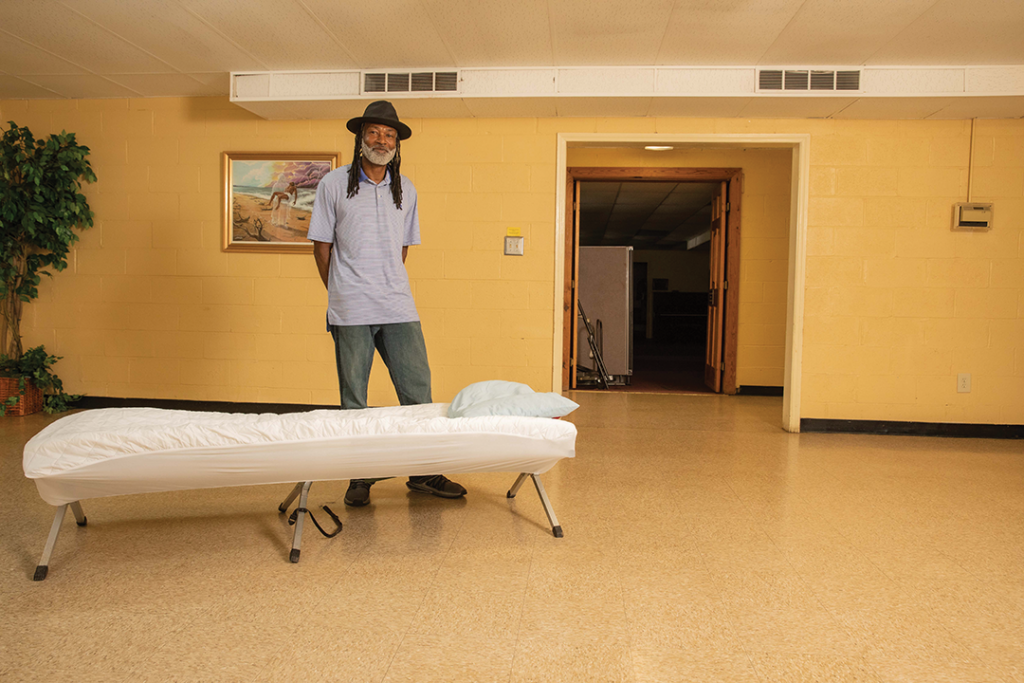In the aftermath of natural disasters like Hurricane Michael, local linemen oftentimes represent the light at the end of uncertainty’s tunnel for those who have had their lives turned inside out.
Anyone familiar with veteran Atlanta sports journalist Sandra Golden knows it takes a lot to knock the thousand-watt smile off of her face. However, the Florida native was not smiling in October as she watched the weather reports grow more and more grim. Hurricane Michael, a Category 4 storm on the Saffir-Simpson Scale, was bearing down on Lynn Haven, her hometown on the Florida panhandle where her father, mother and sister still lived and opted to ride out the storm.
“My sister literally sent a text that read, ‘I don’t think we’re going to make it,’ and it never went through,” Golden said, her voice cracking with emotion as she described the day months later. “They were huddled in that closet with the roof blowing off; the house was falling down around them.”
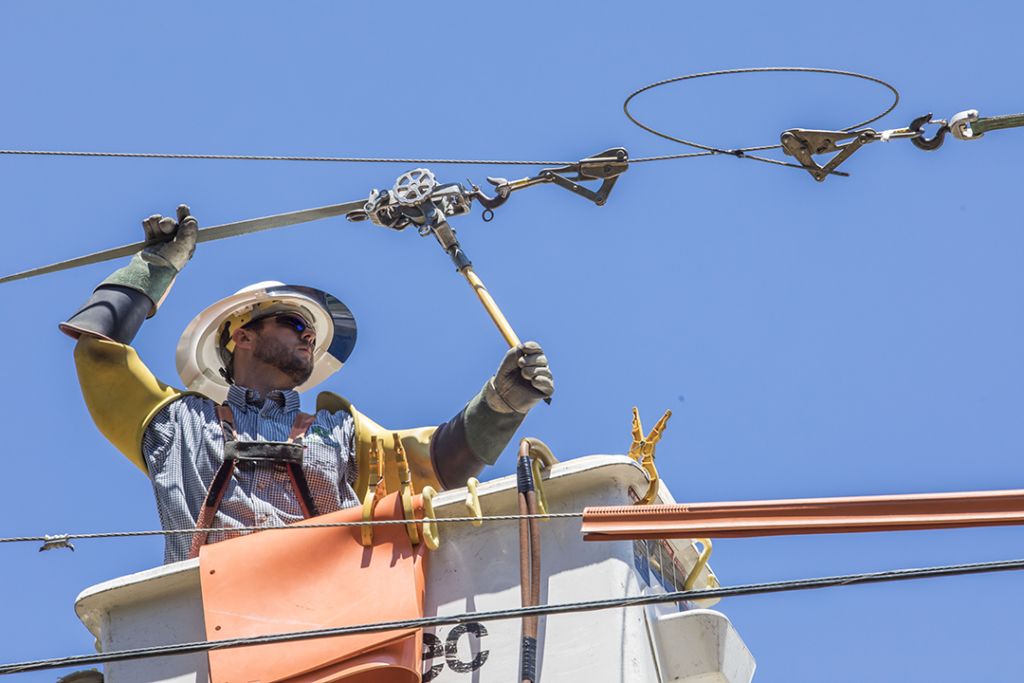
Golden’s father, 86, suffers from dementia, and the confusion and agitation that accompany the disease make evacuation difficult. Moving him was a judgment call.
“People say they shouldn’t have stayed,” Golden said, “but that storm changed overnight. It changed from Category 2 to Category 4.”
In fact, the National Weather Service in April upgraded Michael to a Category 5, the worst of all hurricanes, with winds north of 156 miles per hour. Golden did not know for three days whether her family survived the storm. She started driving south once she knew they were safe, and she was not alone. According to Gulf Power, more than 123 different companies sent teams to assist with restoring power in the Bay County service area in the aftermath of Hurricane Michael. That included energy companies—not just power companies—from other parts of Florida and other states, including Texas, Mississippi, Alabama, Louisiana and Georgia.
I don’t throw around the word ‘miracle,’ but it was angels on earth. When we would see the power people coming down the street, there were roars of applause, people giving them food. They were everywhere, and they were amazing
Sandra Golden
“I don’t throw around the word ‘miracle,’ but it was angels on earth,” Golden said. “When we would see the power people coming down the street—I’m going to start to cry—there were roars of applause, people giving them food. They were everywhere, and they were amazing.”
Bobby Fincher works as the director of line services for Snapping Shoals EMC in Covington and admits he will always be a lineman at heart. He has been with Snapping Shoals for 23 years and served on the front lines of disasters like the one Golden describes. In fact, Fincher sent crews to assist two EMCs in southwest Georgia, an area that was hit hard by Michael: Three Notch EMC in Donalsonville and Mitchell EMC in Sylvester. The situation in Donalsonville and the surrounding Seminole County, where the storm made a direct hit, was particularly dire.
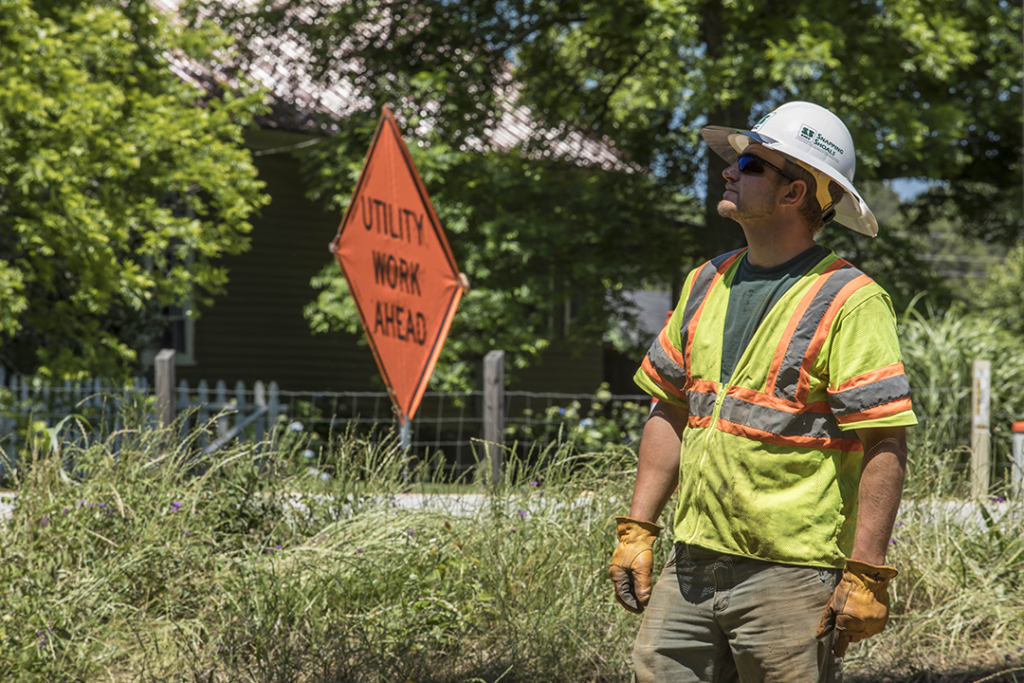
“There was a lot of devastation, poles just laid over,” Fincher said. “Their system was torn up. When I got down there, I saw fields with irrigation pivots that were flipped upside down. I saw trees through houses. It was like stuff you’d see in the movies.”
Snapping Shoals EMC is part of a network of 41 EMCs statewide. It serves members in an eight-county area that includes large portions of Newton, Henry and Rockdale counties, along with portions of Butts, Dekalb, Jasper, Morgan and Walton. The EMCs have a mutual-aid agreement used in the event of power outages. Requests can be made due to any type of event, from high winds, snow and ice storms to hurricanes and tornadoes. When a disaster strikes, either in Georgia or regionally, the state entity—Georgia EMC—fields outside requests for assistance and filters those requests to the local EMCs. Georgia EMC reported as many as 210,000 EMC customers without power after Hurricane Michael did its damage.
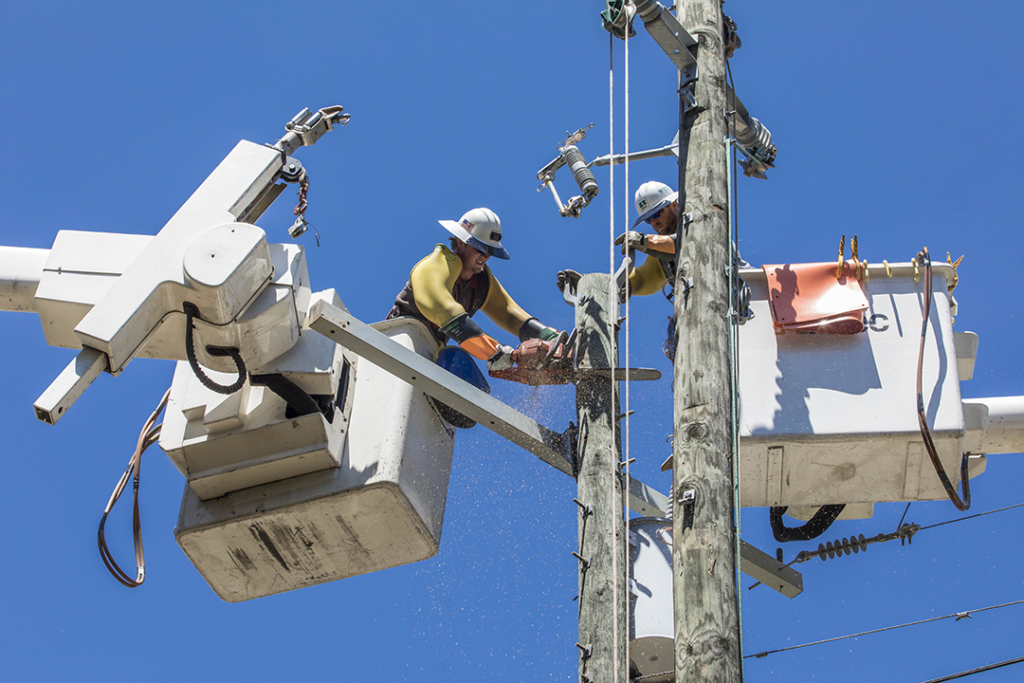
Snapping Shoals Vice President of Operations Don Ritchey determines whether or not the EMC can spare resources, personnel and equipment. However, before that even happens, Ritchey and his team assess whether the Snapping Shoals service area is in the clear weather-wise. For example, Snapping Shoals did not send crews to South Georgia in the days leading up to Hurricane Michael because at the time the storm was projected to impact the metro Atlanta area. Once they know their area is safe, the operations team can start thinking about helping its neighbors.
“We have to look at our workload whenever we get a call,” Fincher said. “We don’t send our people out at the expense of our customers.”
Snapping Shoals EMC maintains a list of employees who volunteer to serve on its emergency and disaster response teams. They are listed by job classification.
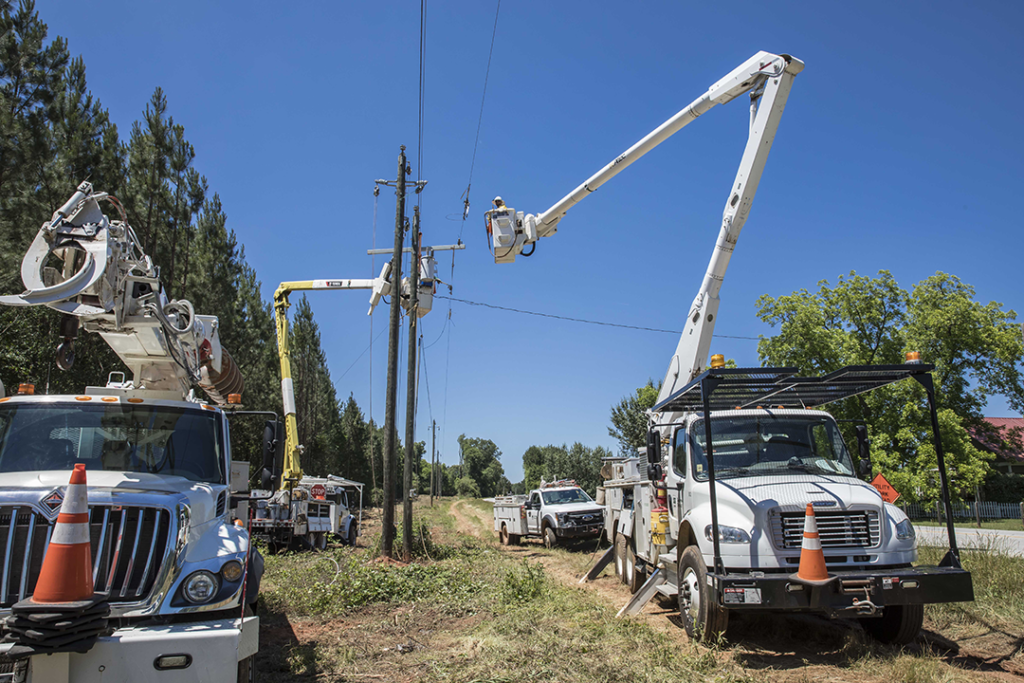
“We’ll send teams or crews based on what they’re requesting,” Fincher said. “If they’re requesting a two-man team, that’s a bucket [truck] and two men. They may request a full-fledged construction crew. That’s two buckets, a line truck that we use to set poles and the pickup [driven by a foreman]. It could be an eight-person team.”
Sometimes there is a need for office personnel. Three Notch EMC was a much smaller co-op with fewer employees. Snapping Shoals offered to send warehouse workers to help it rebuild. Disaster teams usually have just a few hours to prepare to deploy. They may be gone for a day or two, sometimes for weeks at a time. Oftentimes, those calls come in the middle of the night.
“To be a family member of a person that works at the utility demands a lot,” Fincher said. “Sometimes wives get up at midnight to do laundry to get their husbands ready to go in the morning. It takes the community.”
In the aftermath of Hurricane Michael, Snapping Shoals crews worked long days, often consisting of 16- to 18-hour shifts. Mitchell EMC in Sylvester needed help but did not have anywhere to house the crews, as all the motels in the area were filled with evacuees. A local farmer with a large workshop housed and helped feed the Snapping Shoals team.
“He and some of the community members actually washed clothes for some of our guys down there,” Fincher said. “That’s what you go for, because you help people like that. It tends to bring out the best in people, and it restores hope a bit.”
Disaster crews are compensated for their time, but pay has little to do with their motivation.
“In my experience and the experience of the guys in the field, the pay is not why you go,” Fincher said. “To be honest with you, the pay isn’t nearly enough when you consider all that is expected and required from a lineman assisting in the restoration of the downed power lines. The main reason you go is because you know if something like that happened here, there are people willing to come here, because we’re a brotherhood. We help our brothers out.”
Fincher sees the rewards as intangible and points to an experience he had while working with a crew at Three Notch EMC.
“There was a family living across the road from the switch that fed the house, and they’d been out of power for I don’t know how many days,” he said. “Our guys had been down there for a while working with other co-ops. This family had four or five kids and a farmhouse and animals, and they were doing everything they could do to keep things going. We get over there and get their wire put back up, and I actually went across the road to close their switch in; and the guys that were working were going to stay there and make sure everything came back on.
“As soon as the switch closed in, the lights came on in the house, because it was dark,” Fincher added. “Well, it sounded like people cheering at a football game. It was the kids saying, ‘Thank you, thank you, thank you.’ If you were to ask anyone here, that’s probably the best experience, that and the letters you get weeks later. That’s the reward.”
Click here to read more stories by Patty Rasmussen.

